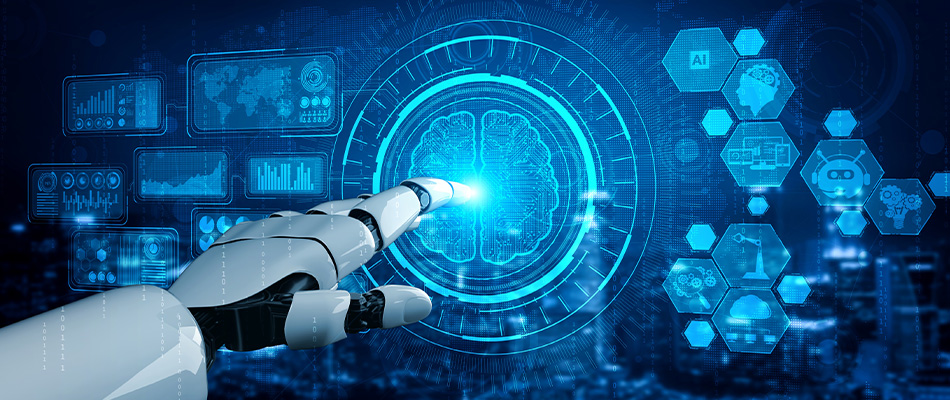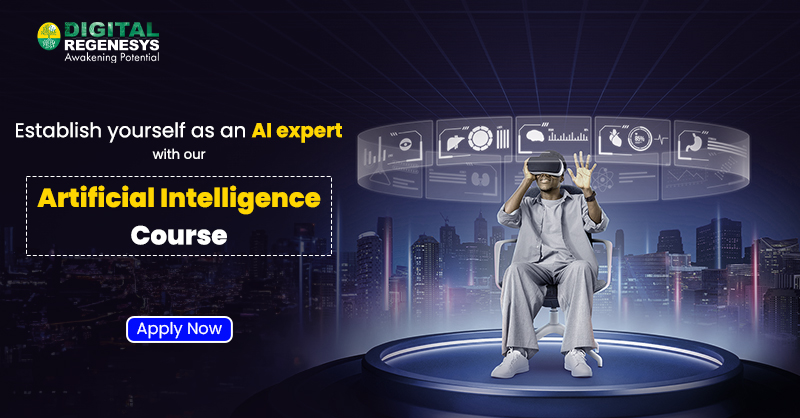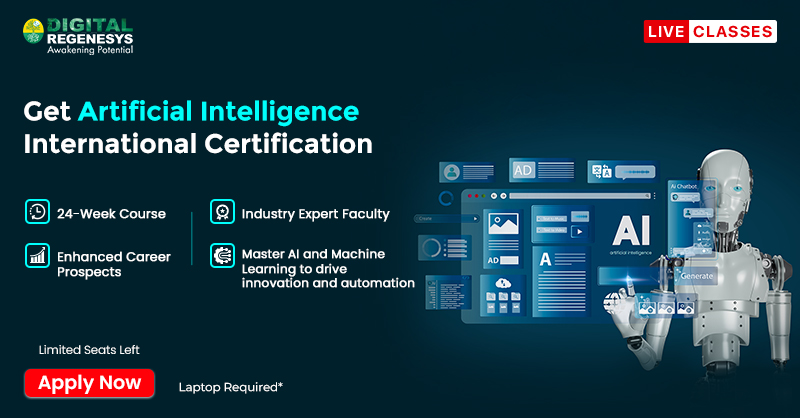Implications of Gen AI for Industry Professionals

Generative AI is rapidly reshaping the professional landscape, influencing how work is done and what skills are required. For industry professionals, understanding AI’s potential and limitations has become essential for maintaining relevance and driving efficiency. Professionals are now required not just to perform traditional tasks, but to adapt, collaborate with AI tools, and make informed decisions that integrate AI capabilities responsibly.
In this article, we examine the implications of Gen AI for industry professionals in 2025, exploring career impact, emerging skills, ethical considerations, and strategies for professional upskilling.
Understanding Generative AI
Generative AI represents a class of artificial intelligence systems designed to create content autonomously, including text, images, videos, and even software code. Unlike traditional AI, which primarily analyses or classifies data, Gen AI actively produces outputs that mimic human creativity, providing businesses with innovative solutions across multiple sectors. Its applications range from generating marketing content to automating complex analytical reports, offering a blend of efficiency and innovation.
The list below highlights the core technologies powering Gen AI and their practical applications in professional settings:
- Large Language Models (LLMs) – AI systems capable of understanding, summarising, and generating human-like text, useful for report writing, documentation, and customer communications.
- Image and Video Generation – AI tools that create visual content based on prompts, assisting in design, marketing, and creative industries.
- Code Generation Tools – Automation of programming tasks, including software testing, debugging, and rapid prototyping of applications.
- Predictive Analytics Models – Leveraging AI to identify patterns, forecast trends, and inform decision-making in business and finance.
Read more on What is Generative AI and How Does it Work? here

Impact on Professional Roles
Gen AI is transforming the nature of work across industries. While it automates repetitive and time-consuming tasks, it also creates opportunities for professionals to engage in higher-level analysis, decision-making, and innovation. Understanding these shifts is crucial for remaining competitive in the evolving job market.
Automation of Routine Tasks
Many daily professional activities are now supported or replaced by AI systems, reducing manual workload and increasing efficiency. The following examples illustrate common areas of AI adoption:
- Generating reports and summarising datasets automatically.
- Analysing large volumes of data to extract insights.
- Creating marketing copy, presentations, and internal documentation.
Shift in Skill Requirements
As AI assumes routine responsibilities, professionals must adapt by developing complementary skills. The emphasis is increasingly on AI literacy, problem-solving, and collaboration with automated systems.
Emerging roles include:
- AI Trainers and Prompt Engineers – Professionals who optimise AI outputs for accuracy and relevance.
- AI Ethicists – Specialists ensuring responsible AI use and mitigating bias.
- Human-AI Workflow Coordinators – Experts managing the integration of AI tools within operational processes.
Enhancing Creativity and Decision-Making
AI does not eliminate the need for human insight; it augments it. Professionals now have tools to accelerate creative ideation and make data-driven decisions more efficiently:
- Using AI to generate multiple concept variations for marketing, design, or strategy.
- Leveraging insights from AI to inform strategic business decisions.
- Experimenting with creative solutions at a faster pace while maintaining human oversight.
Industry-Specific Implications
Different industries experience unique transformations due to Gen AI, requiring professionals to understand sector-specific applications. Adapting to these tools ensures workflow efficiency and competitiveness in the market.
Finance & Banking
AI is revolutionising financial services by automating complex analyses and improving risk management. Key applications include:
- Risk modelling and predictive analytics – AI identifies patterns to forecast potential losses and optimise investment strategies.
- Automated reporting and documentation – Routine financial reports and regulatory submissions are generated quickly and accurately.
- Fraud detection – AI systems recognise unusual transactions and anomalies, strengthening security and reducing financial risk.
Healthcare
The healthcare sector benefits from AI-driven insights that improve patient outcomes and operational efficiency:
- AI-assisted diagnostics – Automated analysis of medical images and test results enhances accuracy and speeds up diagnoses.
- Personalised treatment planning – AI evaluates patient data to suggest tailored treatment options, improving care quality.
- Workflow optimisation – Hospital management and administrative tasks are streamlined, allowing healthcare professionals to focus on patient care.
Marketing & Media
Generative AI empowers marketing teams to deliver highly targeted campaigns and creative content efficiently:
- Automated content creation – Blogs, social media posts, and marketing materials can be generated quickly without compromising quality.
- Personalised customer messaging – AI analyses consumer behaviour to deliver customised communications that drive engagement.
- Creative support – AI assists in designing visuals, advertisements, and multimedia campaigns, accelerating the creative process.
Education & Training
In education, AI tools personalise learning experiences and automate administrative tasks:
- Adaptive learning platforms – Systems adjust content in real-time based on learner progress, improving comprehension and retention.
- Automated assessments – Grading and evaluation processes are accelerated, allowing educators to focus on teaching.
- Content development – AI aids in creating interactive learning modules and educational resources, enhancing engagement.
Technology & IT
The technology sector leverages AI to accelerate software development and improve cybersecurity. Some ways in which this has led to improvements in the sector include:
- Automated code generation – AI assists developers in writing and optimising code, reducing development time.
- Software testing and quality assurance – Simulated scenarios and automated testing enhance reliability and performance.
- Predictive cybersecurity – AI monitors systems to detect vulnerabilities and potential threats before they escalate.
Read more on 7 Best Case Uses of Generative AIhere
Strategies for Industry Professionals
To remain competitive and thrive in an AI-driven workplace, professionals must adopt deliberate strategies that combine practical skills, critical thinking, and ethical awareness. Successfully integrating AI requires more than just familiarity with tools.
It also demands a clear understanding of how AI interacts with human workflows and supports decision-making. The following strategies provide a roadmap for professionals aiming to leverage AI responsibly and efficiently:
- Continuous Upskilling – Regularly engage with AI tools, platforms, and learning opportunities, such as the Digital Regenesys Certification Course in Artificial Intelligence, to stay current with technology advancements.
- Cross-Functional Collaboration – Work effectively with AI systems, integrating their capabilities into team workflows for improved outcomes.
- Critical Evaluation – Assess AI outputs for accuracy, reliability, and contextual relevance before applying them in decision-making.
- Ethical Integration – Implement AI responsibly in professional processes, balancing efficiency with ethical considerations.
Read more on How to Start Studying Artificial Intelligence? here
Skills Professionals Must Develop
Developing AI-related skills is essential for career growth and remaining effective in an AI-driven workplace. Acquiring these skills positions professionals to fully leverage AI’s benefits while mitigating risks, supporting long-term career success.
Some of the skills professionals should focus on include:
- Technical Literacy – Understanding AI tools, APIs, and outputs to apply AI effectively within workflows.
- Critical Evaluation – Analysing AI-generated outputs to ensure accuracy, quality, and relevance before acting on them.
- Adaptability – Integrating AI into changing workflows while maintaining efficiency and flexibility.
- Ethical Awareness – Recognising potential biases, privacy concerns, and compliance requirements when using AI.

Conclusion
Generative AI is reshaping professional roles, workflows, and skill requirements across industries. Professionals who embrace AI literacy, ethical practices, and continuous upskilling will not only maintain relevance but also enhance productivity, creativity, and strategic decision-making. Integrating AI responsibly into workflows ensures that technology complements human insight rather than replacing it, opening opportunities for innovation and career growth.
To prepare for this evolving landscape, professionals can gain practical skills, hands-on experience, and ethical guidance through the Digital Regenesys Certification Course in Artificial Intelligence. Engaging proactively with AI tools positions professionals to adapt, thrive, and remain competitive in 2025 and beyond. Explore our accredited course on the Digital Regenesys website.
Last Updated: 15 October 2025
